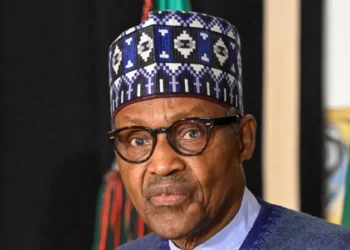
Menkiti Onyebuchi Bernie, Features Editor
Rwanda is famous; known largely for the 100 day genocide that took place from 7th April to mid July 1994 in which about 500,000 to 1,000,000 Rwandans were killed. The destruction of lives and properties that characterized the carnage days attracted the irk and attention of the world. The very end of the war, was bitterness and sadness, one which killed off the mood of the once thriving Belgian Colonial Territory.
The story of Rwanda isn’t particularly different from the story of Africa, where civil war thrived, except for the bullish intrigues with which brothers massacred and maimed brothers and more so the spectre with which the major actors, the Hutus and Tutsis embraced a peace entreaty and moved on as if nothing such as the calamitous genocide ever happened.
What followed however, has been success stories built on tireless effort of it’s leaders, particularly it’s President, Paul Kegame and it’s people who vowed to rebuild the soul of the once crisis ridden country, and allow wounds heal. The fall out has been mind-blowing. Rwanda have in a span of a near two decades altered it’s fortune to preclude a seat in global index of one of world’s progressive states.
Aside that many things have been achieved -high network of roads, re-energizing of the economy through massive influx of foreign direct investments encouraged by Rwanda’s political stability and ease of doing business- in the post-war period, the issues around lack of rural internet broad band still subsists. To put an end to this, the government few weeks ago entered into partnership with a major UK stakeholder in broadband business in the world. It was meant to facilitate the reaches of broadband to the fringes of rural Rwanda. Hence the satellite, was meant to provide extensive broadband services to remote areas hit by lack of internet broadband deficiencies.
The partner, OneWeb, a UK based global communications company has began to fulfil it’s part of the deal. Recently, it launched the first six satellites into the low-earth orbit. The six satellites were launched at exactly 23:38 at the Atlantic coast of the French Guiana space centre, a space port. It the one used largely by the memeber country’s of the European Union. According to report, one of the satellites known as Icyerekezo is expected to provide broadband internet to remote schools in Rwanda. The reported further stated that the launch of the orbit satellites were successfully and marks a landmark in the life of rural dwellers in Rwanda.
In the spirit of global economic diplomacy and support, they were a few world political and business leaders who were present at the launch. Billionare Richard Branson of Virgin Group, top managers of Soft Bank of Japan, Airbus leaders, French ministers and other important dignitaries were in present to witness the launch.
Internet penetration in Africa has been reported as one of the worst in the world, and this has held back progression on all areas of Africa’s economic indices. The plan by Rawanda to bridge this gap and connect schools in remote areas to the internet is on it’s own a painstaking revolution which all African states must emulate in this era where technology has become an enabler for growth.
According to Government report, the first beneficiary of the broadband connectivity would be Groupe Scolaire St Pierre Nkombo, located on Nkombo Island in the middle of Lake Kivu. The broadband connectivity is necessary given the financial constraints inherent in extending network fibre to rural Rwanda, especially in cases where St. Pierre Nkombo had no access to internet prior to the new hope.Therefore, it was before now impossible for rural students to utilise ICT equipment the government had provided to aid learning in rural schools.
It is projected that with projects such as this, and with the assistance of the internet broadband satellite, the cost of internet will drop even in Urban areas. According to reports, ‘the ministry did not make public the details of the partnership, though available report reads, ‘the ministry had first publicly announced the launch of the satellite on Tuesday, saying it will not only connect rural schools but also enable other services to underserved communities.’
In the spirit of it’s infrastructural diplomacy and desire to expand it’s economic vision, Rwanda in partnership with the Japanese Government will launch further new satellites before the end the year. Other African states must see through Rwanda and begin to make these beneficial economic diplomatic inroads.








